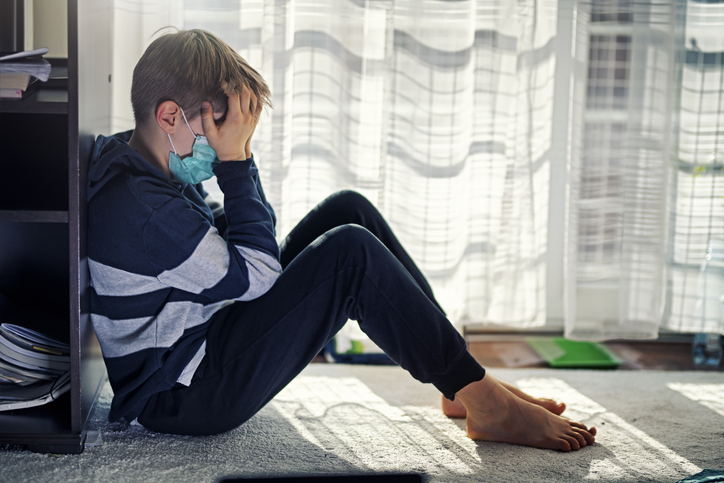How the COVID-19 pandemic impacts youth mental health

Living through the COVID-19 pandemic these past 12 months has been stressful for just about everyone. The strain on mental health has been especially noticeable among pre-teens and teenagers. Studies have shown a significant surge in suicidal ideation in young people during several months of the pandemic, leading to concerns that the risk of suicide is rising in an already vulnerable population.
Even during the best of times, adolescence is a time when many mental health problems emerge as young brains develop and struggle with the challenges of growing up. Add in the strain of increased isolation from their friends, the loss of stress-relieving after-school activities, uncertainty about when they will be able to return to a regular classroom, and the fears that their world might never be the same again. This all has placed tremendous pressure on young people and their families.
Addressing youth mental health during the COVID-19 pandemic
Some of the stories of youth suicides during the pandemic have been heartbreaking. In Texas, a 12-year-old boy died by suicide in April 2020 after being unable to cope with the isolation of remote schooling. In Connecticut, a 17-year-old football player and straight-A student died by suicide in February when depression overwhelmed him. In Las Vegas, a rash of student suicides prompted the school superintendent to decide to reopen schools. Now more than ever, it is vital for parents, teachers, and relatives to ensure that their loved ones receive the appropriate attention and treatment for mental health struggles.
No one knows for sure if adolescent suicides have increased this year because the data on suicides for the past 12 months has yet to be compiled by the Centers for Disease Control and Prevention. Experts are concerned about getting adolescents the help they need to weather the pandemic, however. They say parents must teach their children to use all of the proper safety precautions including masks and social distancing so that they can get some outdoor social interaction, even if it is something brief, such as walking through a park or going for a bike ride. Spending too much time indoors with no one to talk to can make a young person feel miserable and increase the risk of suicide.
When socializing with others isn’t possible, parents need to check in with their kids and not be afraid to have serious conversations that allow them to share their concerns and fears. Experts suggest asking questions about how they are coping with the pandemic and, if they seem depressed, asking them directly if they have considered suicide. No matter how they answer, resist the urge to just try and offer an immediate solution or tell them “don’t worry.” Adolescents need to feel that their problems are valid and aren’t something that can just be hand-waved away. It isn’t always easy to resist that urge to try and solve a child’s problem, but it will help build the trust that is vital for young adults.
Mental health professionals need to do their part
In some cases, young people may need more support than a parent can offer, whether that support comes from crisis lines, a therapist, or an inpatient mental health facility. It is crucial for parents to be able to rely on mental health services to give children the proper treatment as the consequences of inadequate care can be deadly.
Sometimes, despite a parent’s best efforts, a child may die by suicide. If the unthinkable should occur while a child is receiving care, an experienced attorney is necessary to ensure that the mental health services that parents rely on did everything in their power to prevent suicide. A lawyer will hold anyone who is found to be negligent in their duties accountable.
The Law Offices of Skip Simpson has the experience and knowledge to investigate the circumstances of suicide and advise families on how to proceed during an extraordinarily difficult time. We serve clients nationwide, so if you have suffered a tragedy and are worried that your child didn’t receive the proper care, contact attorney Skip Simpson today.




